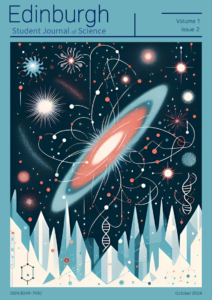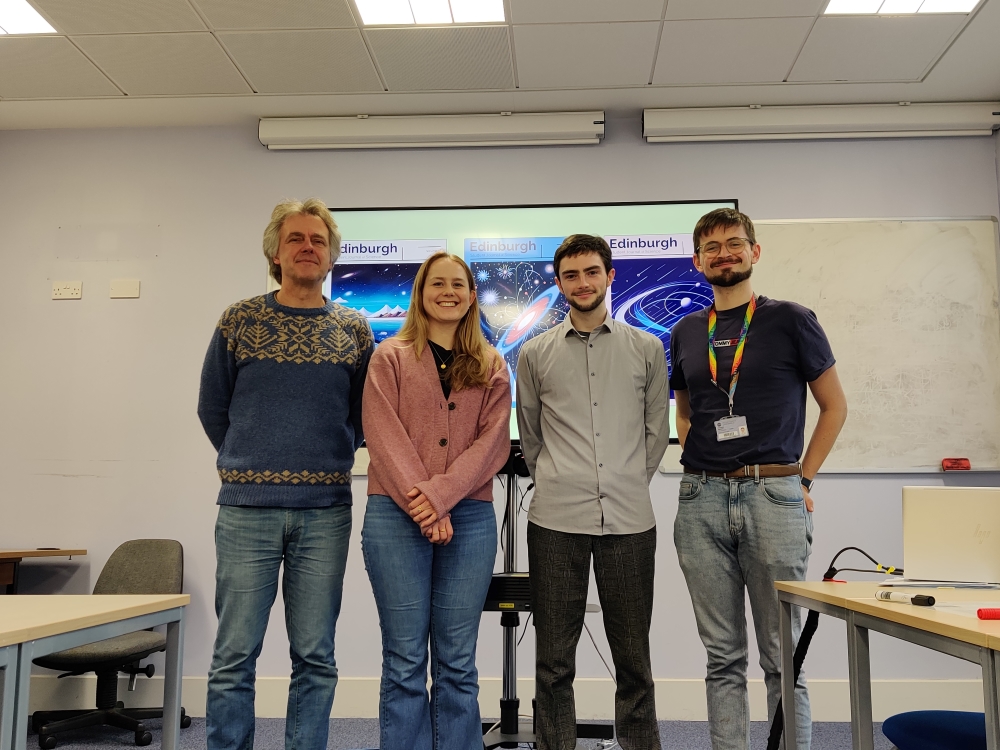The Edinburgh Student Journal of Science

Reading Time: 2 minutes
By Jack Lee Smith, GeoPhysics PhD student
About me
I’m Jack, the creator and editor-in-chief of the Edinburgh Student Journal of Science. I am a second year PhD student studying geophysics with the aim of using data collected from fibre-optic cables to monitor the environment, particularly investigating the possibility of using such cables to monitor underground CO2 storage sites. Before my PhD, I completed a Master’s in Astrophysics, also at the University of Edinburgh, studying topics from quantum mechanics, cosmology, and nuclear physics.

Jack Lee Smith, Editor-in-Chief of the Edinburgh Student Journal of Science and 2nd Year PhD student in the School of Geosciences
The idea
The idea for the Edinburgh Student Journal of Science came a few months into my PhD. One summer during my degree, I completed a research project and wrote a review paper that I wanted to publish to help my future career aspirations as a scientist. I searched for journals which were orientated towards undergraduate or student research, but few existed, and they were typically focused on particular fields or research types. After publishing the work through a non-student focused journal, the idea to create a student journal stayed with me. I thought it could provide a way for students to publish their work, help them gain experience in the scientific publishing and peer-review processes, and allow them to develop skills which would help them further their future ambitions.

The journal issue 2 cover
I created the Edinburgh Student Journal of Science shortly after. It is open to Master’s and later-year undergraduate students who study science within the University. (You can find full eligibility on our website, at the end of this post.)
Submitting an article
Articles can be submitted based on academic research projects, dissertations, summer projects, internships, and various other avenues, with each submission being peer-reviewed by two PhD students. This upholds the quality and rigour of the work published by the journal, and gives both undergraduate and graduate students experience with the peer-review process from both sides.
If an article is accepted, it is professionally formatted and published like other academic journals (Nature, Cell, BMJ), which includes the work receiving a DOI (Digital Object Identifier), being indexed across scholarly databases (Google Scholar, CrossRef), and being citable by other researchers worldwide. The Edinburgh Student Journal of Science adopts a continuous publishing model which means that submissions are published as soon as they are accepted.
The journal accepts submissions from University of Edinburgh students, and is now accepting submissions from students at other universities, most recently including the University of St Andrews. Follow our social media channels to keep up to date with our progress!
Want to get involved?
If you are a 4th or 5th year undergraduate or Master’s student studying science in the College of Science and Engineering, and think you have research that deserves publication in the journal, you can submit 1500-word articles based on your research. You can see the full eligibility for submitting, as well as detailed guidance and writing templates, on our website – The Edinburgh Student Journal of Science.
We are always looking for PhD students who want to review articles for the journal. Email us at ESJS@ed.ac.uk if this is something that appeals to you!

The Edinburgh Student Journal of Science Editorial Board. Left to right: Professor Andrew Curtis, Chair of Mathematical Geoscience and Director of Industrial Engagement in the School of GeoSciences, Katherine Taylor, Jack Lee Smith, and Frederik Dahl Madsen.
Where to find us
Our journal is hosted and published on our website, journals.ed.ac.uk/esjs, where you can find all the previous issues and articles that have been published. Alternatively, search for “Edinburgh Student Journal of Science” in Google Scholar.
You can also keep up to date by following our LinkedIn Page, subscribing to our newsletter through our website, or feel free to contact us at ESJS@ed.ac.uk.




Recent comments